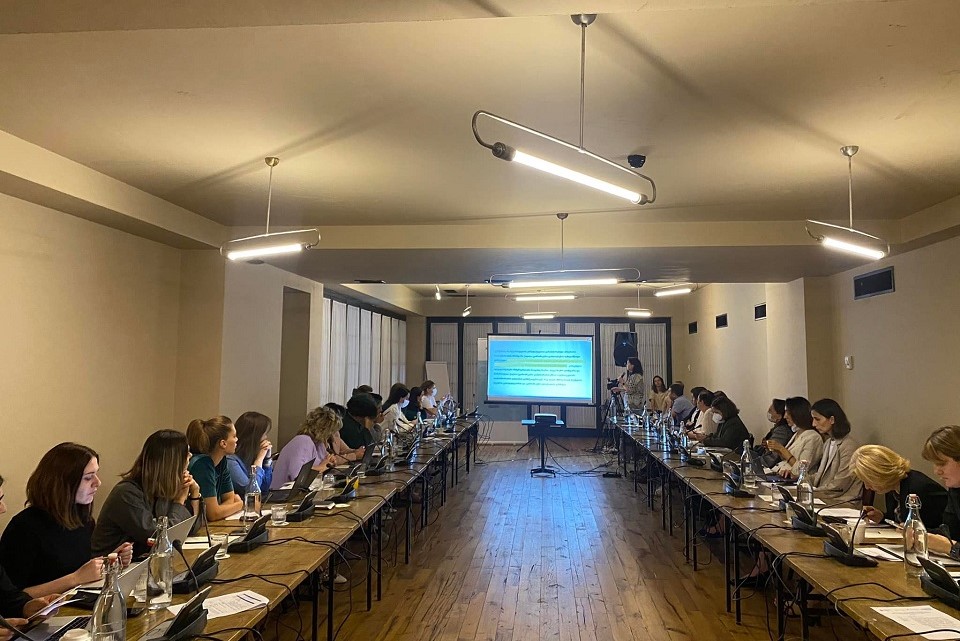Parliament conducts thematic inquiry on mainstreaming gender in state policies
Date:

Traditionally, public policies and legislation have been regarded as gender-neutral simply on the assumption that they equally benefit all members of the public. However, laws and policies often impact women and men differently. Moreover, they may exacerbate the social, cultural or economic inequalities between women and men. Crucially, when institutions, laws, policies and programmes integrate gender considerations, they produce better and more equitable results for men and women and thus contribute to gender equality and good governance.
On 5 July 2022, the Parliamentary Gender Equality Council presented the results of its thematic inquiry on gender mainstreaming within governmental policies to 30 representatives of the legislative and executive government, as well as those from developmental organizations. The inquiry was implemented by the Parliamentary Gender Equality Council with the support of UN Women, and it aimed to explore how gender is mainstreamed in governmental standards on public policymaking. The thematic inquiry also explored how gender is mainstreamed in public policies, strategies and action plans that pertain to the key development objectives of the country (more specifically, areas such as social-economic development, labor and employment, education and science and public administration).
Mariam Lashkhi, member of the Parliamentary Gender Equality Council and keynote presenter of the report, noted: “This Parliamentary Thematic Inquiry analyses the status quo of gender mainstreaming in public policies. The Gender Equality Council plans to follow up on the findings and recommendations of this report and exercise parliamentary monitoring and oversight mechanisms to ensure effective implementation of recommendations and ensure progress in the field.”
The thematic inquiry report additionally revealed that, despite certain progress, integration of a gendered perspective has not been systematically carried out throughout state policies. The report further revealed that the existing public policymaking standards and methodologies do not integrate indicators on gender-sensitive policymaking, and that gender analysis, as a rule, is not undertaken during public policy planning across sectors. Aligned with the key findings, the report thus put forward a set of recommendations calling on the Government of Georgia to institutionalize gender mainstreaming methodologies as an integral part of the policymaking cycle across every sector.
The initiative itself was supported within the framework of the “Good Governance for Gender Equality in Georgia” project, implemented by UN Women and generously supported by the Norwegian Ministry of Foreign Affairs.